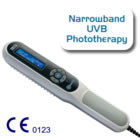1. Psoriasis can be traced to its ancient Greek root: (‘psora’ which means to “itch;” the word “sis ” means condition.” Most patients suffering from psoriasis have to endure acute itching.
2. The National Psoriasis Foundation defines Psoriasis as “a chronic, autoimmune disease that appears on the skin. It occurs when the immune system sends out faulty signals that speed up the growth cycle of skin cells.”
3. Psoriasis manifests itself on the skin in the form of red patches which cause irritation and itching.
4. According to the National Psoriasis Foundation, there are 5 types of psoriasis. The most common form of psoriasis is plaque psoriasis. The round or oval shaped plaques on the skin can be found on the eyelids, elbows, knees, lower back or even the scalp. These can be found on any other part of the body too.
5. Researchers believe that 10% of the US population has the genes to potentially develop the disease. However, only 2-3% may actually get the symptoms.
6. Psoriasis is not contagious. It is not transmitted by touch or contact with a person afflicted with the condition.
7. Researchers say that genetic predisposition is not the only cause of psoriasis. Outside factors or triggers may be a cause too. However, these external triggers may not affect all those genetically predisposed to getting psoriasis.
|
 |
 |
8. Some of the triggers include stress, dryness of skin, respiratory infections. It is believed that medications may also cause psoriasis symptoms to appear. These include anti depression drugs, anti malaria medication and beta blockers.
9. Psoriasis can strike at any age, although it is believed to be most common among youth between the ages of 15 to 30 years. It is known to affect seniors between 60 and 75 years too.
10. Psoriasis patients may be at risk of other chronic health conditions such as heart disease, depression, obesity, blood pressure, diabetes or cancer.
11. The treatment for psoriasis depends on its severity. According to the National Psoriasis Foundation, “people with psoriasis on less than three percent of their body are considered to have a mild case. Those with three to 10 percent of the body affected by psoriasis are considered a moderate case. More than 10 percent is considered severe.”
12. Mild or moderate cases may be treated with topical medications such as hydrocortisone. The physician usually begins with mild preparations of liquid gels or ointments before graduating to the stronger versions. Prolonged exposure to these medications can lead to thinning of the skin.
13. Other creams that may be tried include a Vitamin D based cream called calcitriol. Doctors may also recommend moisturizers, immunomodulators or bath salts for treatment.
14. New treatments include biologic drugs which are given intravenously. However, biologics can make patients vulnerable to respiratory infections.
Related Products
Other Blog post you may find useful:
- How does light therapy work for psoriasis?
- Treatment for Psoriasis
- Causes of Psoriasis
- How do I treat scalp psoriasis
